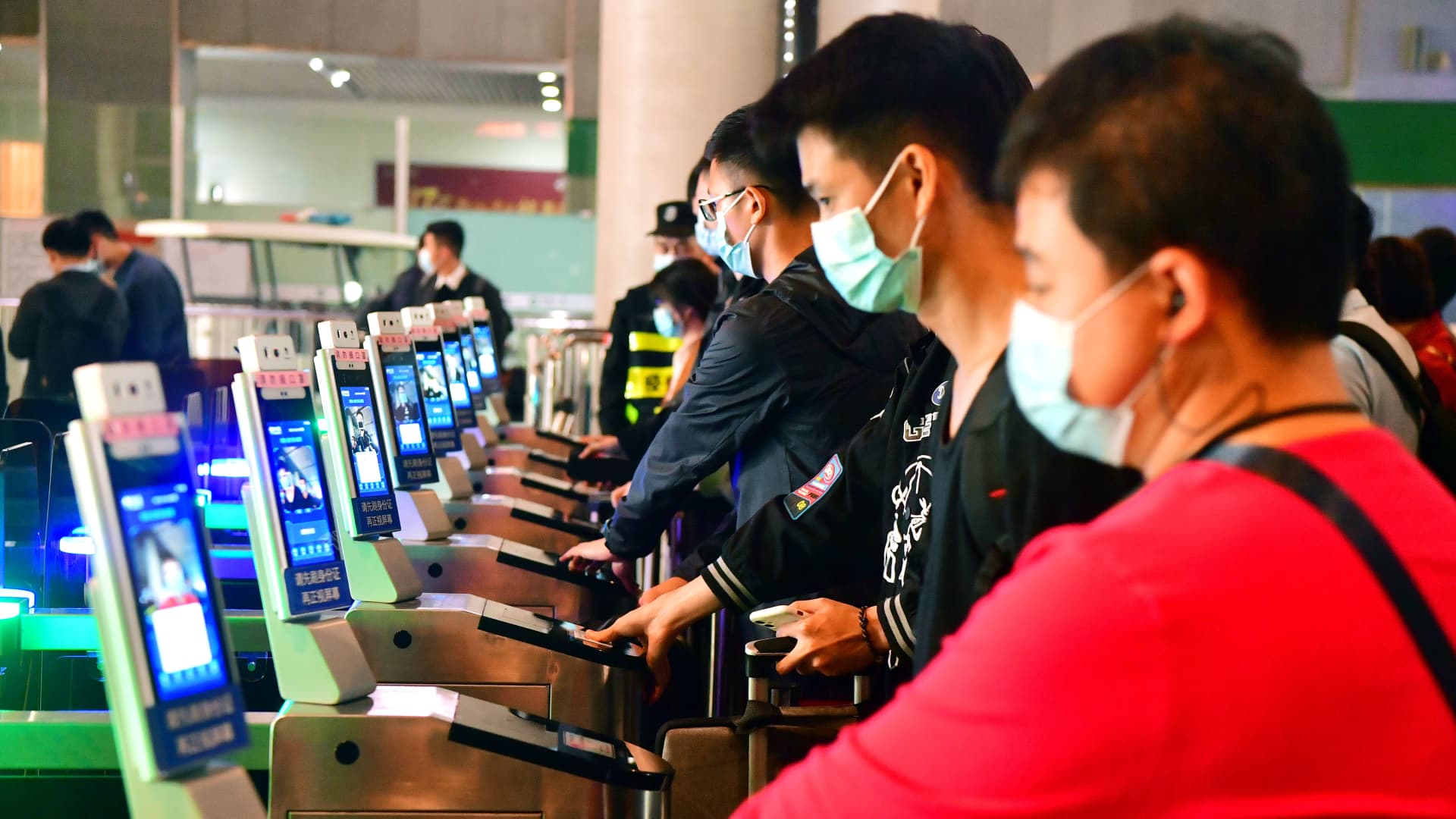Passengers swipe ID cards to exit Fuzhou South Railway Station on Dec. 16, 2021. The process doesn’t require passengers to remove masks for facial recognition.
China News Service | China News Service | Getty Images
BEIJING — China intends to limit the use of facial recognition technology by businesses in favor of non-biometric identification methods, as revealed in draft regulations from the Cyberspace Administration published on Tuesday.
The proposed policy mandates individual consent and a specific purpose for utilizing facial recognition.
The draft, translated by CNBC, states, “If there are non-biometric verification technology for achieving a similar purpose or business requirements, those non-biometric verification methods should be preferred.”
However, the draft does not specify if individual consent is not required in certain administrative situations. If facial recognition is employed, the proposed regulations encourage using national systems.
The installation of equipment for image collection and personal identification in public places should primarily focus on maintaining public safety. The draft rules emphasize the need for clear signage.

How facial recognition is being tested
Businesses in China have conducted trials using facial recognition for payment at convenience stores.
Some residential complexes have implemented facial recognition systems for tenants’ entry by scanning their faces. While some subway turnstiles in Beijing have facial recognition scanners, they are currently covered up.
Chinese ID holders at high-speed train stations can simply swipe their ticket-linked ID cards to access the station and platform, sometimes with the assistance of facial recognition.
Where the tech may face restrictions
The Cyberspace Administration of China stated in its proposed rules that airports, hotels, stations, banks, stadiums, and exhibition halls should not utilize facial recognition for personal identity verification unless required by law.
The draft does not specify the requirements of the law, but it emphasizes that businesses should not make facial recognition mandatory for better services.

The draft states that building management cannot rely solely on facial recognition for people to enter or exit. If individuals do not consent to facial recognition, management should provide other reasonable and convenient methods.
The proposed rules also forbid the installation of image or personal information collection equipment in hotel rooms, public bathrooms, changing rooms, and toilets.
The draft is open for public comment until September 7.
Last week, China’s influential cybersecurity regulator released draft regulations aimed at limiting minors’ phone screen time and enhancing personal data protection requirements. Public comments on the proposed rules are being accepted.
Denial of responsibility! VigourTimes is an automatic aggregator of Global media. In each content, the hyperlink to the primary source is specified. All trademarks belong to their rightful owners, and all materials to their authors. For any complaint, please reach us at – [email protected]. We will take necessary action within 24 hours.


